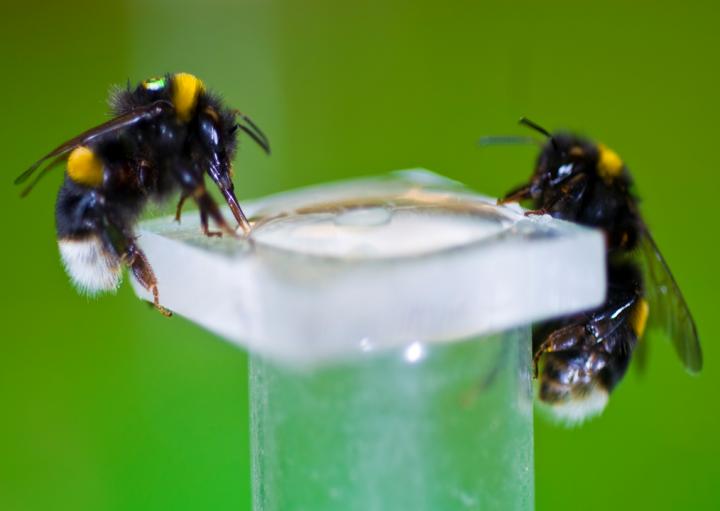Researchers gave bumblebees the option to choose between a sugar solution with nicotine in it and one without and found that bees infected with the Crithidia bombi parasite were more likely to go for the nicotine-laced nectar than those that weren't infected.
Bees are not the only species known to use nicotine to fight parasites, with house sparrows using cigarette butts in their nests to ward off mites.
Infected bumblebees that consumed nicotine delayed the progress of the infection for a few days, showing lower levels of parasites than those that had not.
There have been some lingering concerns about bee health since a statistical blip in 2006, where deaths went up before rebounding, and that led to speculation about whether or not it was related to prevalence of neonicotinoids, a class of pesticides which are based on properties of nicotine, or just parasite and general environmental issues that happen in cycles.

Credit: D Baracchi/QMUL
The direct benefit to bee colonies remains unclear - infection was warded off, but not permanently - and consuming nicotine also had negative effects, appearing to suppress the appetite of infected bees much like smoking does in humans. Healthy bees that consumed nicotine showed shorter lifespans than those that did not consume any.
Dr David Baracchi from the School of Biological and Chemical Sciences at from Queen Mary University of London and co-author of the research, said, "While it's clear that there is some benefit to nicotine consumption for parasite-infected bees, a key challenge now is to discover exactly how such natural medication limits the impact of the disease on the bees' society.
"Given the stresses placed on worldwide bee populations by disease, understanding how the bees themselves fight infection is key."
Citation: 'Weak and contradictory effects of self-medication with nectar nicotine by parasitized bumblebees' by Baracchi D, Brown MJF and Chittka L. is published by F1000Research 2015, 4:73 doi: 10.12688/f1000research.6262.1





Comments